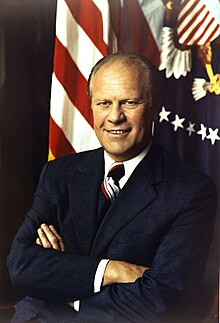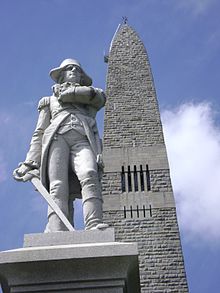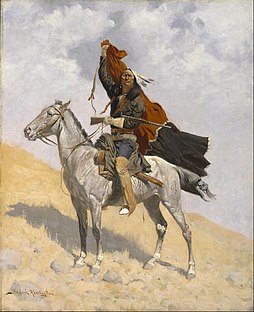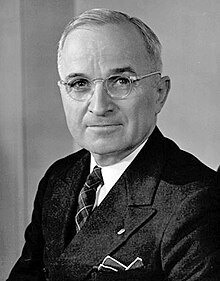
December 26 is the 360th day of the year (361st in leap years) in the Gregorian calendar. There are five days remaining until the end of the year.
Holidays
- Boxing Day, except when December 26 is a Sunday. If it is a Sunday, Boxing Day is transferred to December 27 by Royal Proclamation. (Commonwealth of Nations), and its related observances:
- Christian feast day:
- Abadiu of Antinoe (Coptic Church)
- Earliest day on which Feast of the Holy Family can fall, celebrated on Sunday after Christmas or 30 if Christmas falls on a Sunday.
- James the Just (Eastern Orthodox Church)
- Stephen (Western Church)
- Synaxis of the Theotokos (Eastern Orthodox Church)
- December 26 (Eastern Orthodox liturgics)
- Independence and Unity Day (Slovenia)
- Mauro Hamza Day (Houston, Texas)
- Mummer’s Day (Padstow, Cornwall)
- St. Stephen’s Day (public holiday in Alsace, Austria, Catalonia, Croatia, the Czech Republic, Germany, Hong Kong, Italy, Ireland, Luxembourg, Poland, Slovakia and Switzerland), and its related observances:
- The first day of Kwanzaa, celebrated until January 1 (United States)
- The first day of Junkanoo street parade, the second day is on the New Year’s Day (The Bahamas)
- The first of Twelve Holy Days (Esoteric Christianity)
- The second day of the Twelve Days of Christmas (Western Christianity)
- Wren Day (Ireland and the Isle of Man)
History
In 887, Berengar I is elected as king of Italy by the lords of Lombardy. He is crowned with the Iron Crown of Lombardy at Pavia.
In 1135, Coronation of King Stephen of England.
In 1481, Battle of Westbroek: Holland defeats troops of Utrecht.
In 1776, American Revolutionary War: In the Battle of Trenton, the Continental Army attacks and successfully defeats a garrison of Hessian mercenaries.
In 1784, Seth Warner, American colonel (b. 1743) died on December 26, 1784 at age 41. He was a Revolutionary War officer from Vermont who rose to rank of Continental colonel and was often given the duties of a brigade commander. He is best known for his leadership in the capture of Fort Crown Point, the Battle of Longueuil, the siege of Quebec, the retreat from Canada, and the battles of Hubbardton and Bennington. Before the war, he was a captain in the Green Mountain Boys. He was outlawed by New York but never captured. In the final years of the war, he remained loyal to the United States while the independent state of Vermont negotiated separately with the British.
In 1790, Louis XVI of France gives his public assent to Civil Constitution of the Clergy during the French Revolution.
In 1793, Second Battle of Wissembourg: France defeat Austria.
In 1793, The wedding of Prince Friedrich Ludwig of Prussia and Frederica of Mecklenburg-Strelitz takes place.
In 1799, Four thousand people attend George Washington‘s funeral where Henry Lee III declares him as “first in war, first in peace and first in the hearts of his countrymen.”
In 1805, Austria and France sign the Treaty of Pressburg.
In 1806, Battles of Pultusk and Golymin: Russian forces hold French forces under Napoleon.
In 1811, A theater fire in Richmond, Virginia kills the Governor of Virginia George William Smith and the president of the First National Bank of Virginia Abraham B. Venable.
In 1825, Advocates of liberalism in Russia rise up against Czar Nicholas I and are put down in the Decembrist revolt in Saint Petersburg.
In 1846, Trapped in snow in the Sierra Nevadas and without food, members of the Donner Party resort to cannibalism.
In 1860, The first ever inter-club association football match takes place between Hallam F.C. and Sheffield F.C. at the Sandygate Road ground in Sheffield, England, United Kingdom.
In 1861, American Civil War: The Trent Affair: Confederate diplomatic envoys James M. Mason and John Slidell are freed by the United States government, thus heading off a possible war between the United States and United Kingdom.
In 1862, American Civil War: The Battle of Chickasaw Bayou begins.
In 1862, Four nuns serving as volunteer nurses on board USS Red Rover are the first female nurses on a U.S. Navy hospital ship.
In 1862, The largest mass-hanging in U.S. history took place in Mankato, Minnesota, 38 Native Americans died.
In 1870, The 12.8-km long Fréjus Rail Tunnel through the Alps is completed.
In 1871, Gilbert and Sullivan collaborate for the first time, on their lost opera, Thespis. It does modestly well, but the two would not collaborate again for four years.
In 1883, The Harbour Grace Affray between Irish Catholics and Protestant Orangemen causes five deaths in Newfoundland.
In 1898, Marie and Pierre Curie announce the isolation of radium.
In 1900, A relief crew arrives at the lighthouse on the Flannan Isles of Scotland, UK, only to find the previous crew has disappeared without a trace.
In 1909, Frederic Remington, American painter and illustrator (b. 1861) died after an emergency appendectomy led to peritonitis on December 26, 1909. His extreme obesity (weight nearly 300 pounds) had complicated the anesthesia and the surgery, and chronic appendicitis was cited in the post-mortem examination as an underlying factor in his death. He was buried in Evergreen Cemetery, Canton, New York. He was an American painter, illustrator, sculptor, and writer who specialized in depictions of the Old American West, specifically concentrating on the last quarter of the 19th-century American West and images of cowboys, American Indians, and the U. S. Cavalry.
In 1919, Babe Ruth of the Boston Red Sox is sold to the New York Yankees by owner Harry Frazee, allegedly establishing the Curse of the Bambino superstition.
In 1925, Turkey adopts the Gregorian calendar.
In 1941, U.S. President Franklin D. Roosevelt signs a bill establishing the fourth Thursday in November as Thanksgiving Day in the United States.
In 1943, World War II: German warship Scharnhorst is sunk off of Norway’s North Cape after a battle against major Royal Navy forces.
In 1944, World War II: George S. Patton‘s Third Army breaks the encirclement of surrounded U.S. forces at Bastogne, Belgium.
In 1948, Cardinal József Mindszenty is arrested in Hungary and accused of treason and conspiracy.
In 1963, The Beatles‘ “I Want to Hold Your Hand” and “I Saw Her Standing There” are released in the United States, marking the beginning of Beatlemania on an international level.
In 1966, The first Kwanzaa is celebrated by Maulana Karenga, the chair of Black Studies at California State University, Long Beach.
In 1972, Vietnam War: As part of Operation Linebacker II, 120 American B-52 Stratofortress bombers attacked Hanoi, including 78 launched from Andersen Air Force Base in Guam, the largest single combat launch in Strategic Air Command history.
In 1972, Harry S. Truman, American colonel and politician, 33rd President of the United States (b. 1884) developed multiple organ failure and died at 7:50 am on December 26 at the age of 88. He was the 33rd President of the United States (1945–53). As the final running mate of President Franklin D. Roosevelt in 1944, Truman succeeded to the presidency on April 12, 1945, when Roosevelt died after months of declining health. Under Truman, the Allies successfully concluded World War II; in the aftermath of the conflict, tensions with the Soviet Union increased, marking the start of the Cold War.
Truman was born in Missouri and spent most of his youth on his family’s farm. During World War I, he served in combat in France as an artillery officer in his National Guard unit. After the war, he briefly owned a haberdashery and joined the Democratic Party political machine of Tom Pendergast in Kansas City, Missouri. Truman was first elected to public office as a county official and became a U.S. Senator in 1935. He gained national prominence as head of the wartime Truman Committee, which exposed waste, fraud, and corruption in wartime contracts.
While Germany surrendered a few weeks after Truman assumed the Presidency, the war with Japan was expected to last another year or more. Truman approved the use of atomic weapons against Japan, intending to force Japan’s surrender and spare American lives in a planned invasion; the decision remains controversial. His presidency was a turning point in foreign affairs, as his government supported an internationalist foreign policy in conjunction with European allies. Working closely with Congress, Truman assisted in the founding of the United Nations, issued the Truman Doctrine to contain communism, and passed the $13 billion Marshall Plan to rebuild Europe, including the Axis Powers of both world wars, whereas the wartime allied Soviet Union became the peacetime enemy, and the Cold War began. He oversaw the Berlin Airlift of 1948 and the creation of NATO in 1949. When communist North Korea invaded South Korea in 1950, he immediately sent in U.S. troops and gained UN approval for the Korean War. After initial success, the UN forces were thrown back by Chinese intervention and the conflict was stalemated through the final years of Truman’s presidency.
On domestic issues, bills endorsed by Truman often faced opposition from a conservative Congress dominated by the South, but his administration successfully guided the American economy through post-war economic challenges. He said civil rights was a moral priority and in 1948 submitted the first comprehensive legislation, issuing Executive Orders the same year to start racial integration in the military and federal agencies. Corruption in Truman’s administration, which was linked to certain members in the cabinet and senior White House staff, was a central issue in the 1952 presidential campaign which Adlai Stevenson, Truman’s successor as Democratic nominee, lost to Republican Dwight D. Eisenhower. Popular and scholarly assessments of his presidency were initially negative, but eventually became more positive after his retirement from politics. Truman’s 1948 election upset to win a full term as president is routinely invoked by underdog candidates.

In 1974, Jack Benny, American actor, singer, and producer (b. 1894) died due to inoperable pancreatic cancer. He was an American comedian, vaudevillian, radio, television, and film actor, and violinist. Recognized as a leading American entertainer of the 20th century, Benny portrayed his character as a miser, playing his violin badly. In character, he would be 39 years of age, regardless of his actual age.
Benny was known for comic timing, and the ability to create laughter with a pregnant pause or a single expression, such as his signature exasperated “Well!” His radio and television programs, popular from the 1930s to the 1970s, were a major influence on the sitcom genre.

In 1974, There was no snow, no rest, and very Christmas in Southeast Asia.
In 1976, The Communist Party of Nepal (Marxist–Leninist) is founded.

In 1977, Howard Hawks, American director and screenwriter (b. 1896) died from complications from falling over his dog several weeks earlier at his home in Palm Springs, California. He was an American film director, producer and screenwriter of the classic Hollywood era. He is popular for his films from a wide range of genres such as Scarface (1932), Bringing Up Baby (1938), Only Angels Have Wings (1939), His Girl Friday (1940), Sergeant York (1941), To Have and Have Not (1944), The Big Sleep (1946), Red River (1948), The Thing from Another World (1951), Gentlemen Prefer Blondes (1953), and Rio Bravo (1959).
In 1942, Hawks was nominated for the Academy Award for Best Director for Sergeant York, and in 1975 he was awarded an Honorary Academy Award as “a master American filmmaker whose creative efforts hold a distinguished place in world cinema.”
In 1982 – Time‘s Man of the Year is for the first time a non-human, the personal computer.
In 1991, The Supreme Soviet of the Soviet Union meets and formally dissolves the Soviet Union.
In 1994, Four Armed Islamic Group hijackers seize control of Air France Flight 8969. When the plane lands at Marseille, a French Gendarmerie assault team boards the aircraft and kills the hijackers.
In 1996, Six-year-old beauty queen JonBenét Ramsey is found beaten and strangled in the basement of her family’s home in Boulder, Colorado.
In 1996, Start of the largest strike in South Korean history.
In 1997, The Soufrière Hills volcano on the island of Montserrat explodes, creating a small tsunami offshore.
In 1998, Iraq announces its intention to fire upon U.S. and British warplanes that patrol the northern and southern no-fly zones.
In 1999, The storm Lothar sweeps across Central Europe, killing 137 and causing US$1.3 billion in damage.

In 2001, Tropical Storm Vamei was a Pacific tropical cyclone, the last storm of the 2001 Pacific typhoon season. On December 26 the storm developed into a tropical depression about 230 km (145 mi) east of Singapore in the South China Sea at 1.4° N, 156 km (97 mi) north of the equator. This was the first recorded occurrence of a tropical cyclone developing near the equator, which had previously been considered impossible because of a lack of Coriolis effect there. It strengthened quickly and made landfall the next day approximately 60 km (35 mi) northeast of Singapore, along extreme southeastern Peninsular Malaysia. The storm rapidly dissipated over Sumatra a day later, and the remnants eventually re-organized in the North Indian Ocean. Though officially designated as a tropical storm, the intensity of Vamei is disputed; some agencies classify it as a typhoon, based on sustained winds of 140 km/h (85 mph) and the appearance of an eye. The storm brought flooding and landslides to eastern Peninsular Malaysia, causing US $3.6 million in damage and five deaths.
In 2003, A magnitude 6.6 earthquake devastates southeast Iranian city of Bam, killing tens of thousands and destroying the citadel of Arg-é Bam.
In 2004, A 9.3 magnitude earthquake creates a tsunami causing devastation in Sri Lanka, India, Indonesia, Thailand, Malaysia, the Maldives and many other areas around the rim of the Indian Ocean, killing over 230,000.
In 2004, Orange Revolution: The final run-off election in Ukraine is held under heavy international scrutiny.
In 2006, An oil pipeline in Lagos, Nigeria explodes, killing at least 260.

In 2006, Gerald Ford, American commander, lawyer, and politician, 38th President of the United States (b. 1913) dies on December 26, 2006, at his home in Rancho Mirage, California, of arteriosclerotic cerebrovascular disease and diffuse arteriosclerosis. He had end-stage coronary artery disease and severe aortic stenosis and insufficiency, caused by calcific alteration of one of his heart valves. He was 93. Ford died on the 34th anniversary of President Harry Truman‘s death; he was the last surviving member of the Warren Commission. Ford became the 11th U.S. President to lie in state. A state funeral and memorial services was held at the National Cathedral in Washington, D.C., on January 2, 2007. After the service, Ford was interred at his Presidential Museum in Grand Rapids, Michigan. He
was an American politician who served as the 38th President of the United States from August 1974 to January 1977, following the resignation of Richard Nixon. Prior to this he served eight months as the 40th Vice President of the United States, following the resignation of Spiro Agnew. He was the first person appointed to the vice presidency under the terms of the 25th Amendment, and consequently the only person to have served as both vice president and president without being elected to either office. He is the most recent vice president to become president as a result of an intra-term vacancy in the office; and his 895 day-long presidency is the shortest in American history for any president who did not die in office. Before his appointment to the vice presidency, Ford served 25 years as U.S. Representative from Michigan’s 5th congressional district, the final nine of them as the House Minority Leader.
As president, Ford signed the Helsinki Accords, marking a move toward détente in the Cold War. With the collapse of South Vietnam nine months into his presidency, U.S. involvement in Vietnam essentially ended. Domestically, Ford presided over the worst economy in the four decades since the Great Depression, with growing inflation and a recession during his tenure. One of his most controversial acts was to grant a presidential pardon to President Richard Nixon for his role in the Watergate scandal. During Ford’s presidency, foreign policy was characterized in procedural terms by the increased role Congress began to play, and by the corresponding curb on the powers of the President. In the Republican presidential primary campaign of 1976, Ford defeated former California Governor Ronald Reagan for the Republican nomination. He narrowly lost the presidential election to the Democratic challenger, former Georgia Governor Jimmy Carter.
Following his years as president, Ford remained active in the Republican Party. His moderate views on various social issues increasingly put him at odds with conservative members of the party in the 1990s and early 2000s. After experiencing a series of health problems, he died at home on December 26, 2006. At the time of his death, Ford—at the age of 93 years and 165 days—was the longest-lived of all U.S. presidents (a mark surpassed by George H. W. Bush on November 25, 2017).
In 2009, China opens the world’s longest high-speed rail route, which links Beijing and Guangzhou.
In 2014, FORBES EXPOSES THE TRUTH ABOUT THE HASLAM PLAN TO EXPAND OBAMACARE. Governor Bill Haslam (R-TN) recently announced he struck a backroom deal with the Obama administration to expand Obamacare in Tennessee. The governor has no legal authority to expand Medicaid eligibility on his own, which means the state legislature will decide if Obamacare Medicaid expansion will happen.
In 2015, During the December 2015 North American storm complex, a Tornado Outbreak occurred in the DFW Metroplex, with the most notable tornadoes being an EF2, EF3, and an EF4. About a dozen people died due to various reasons, 10 of which due to the EF4, which did substantial damage to the suburb of Rowlett.




